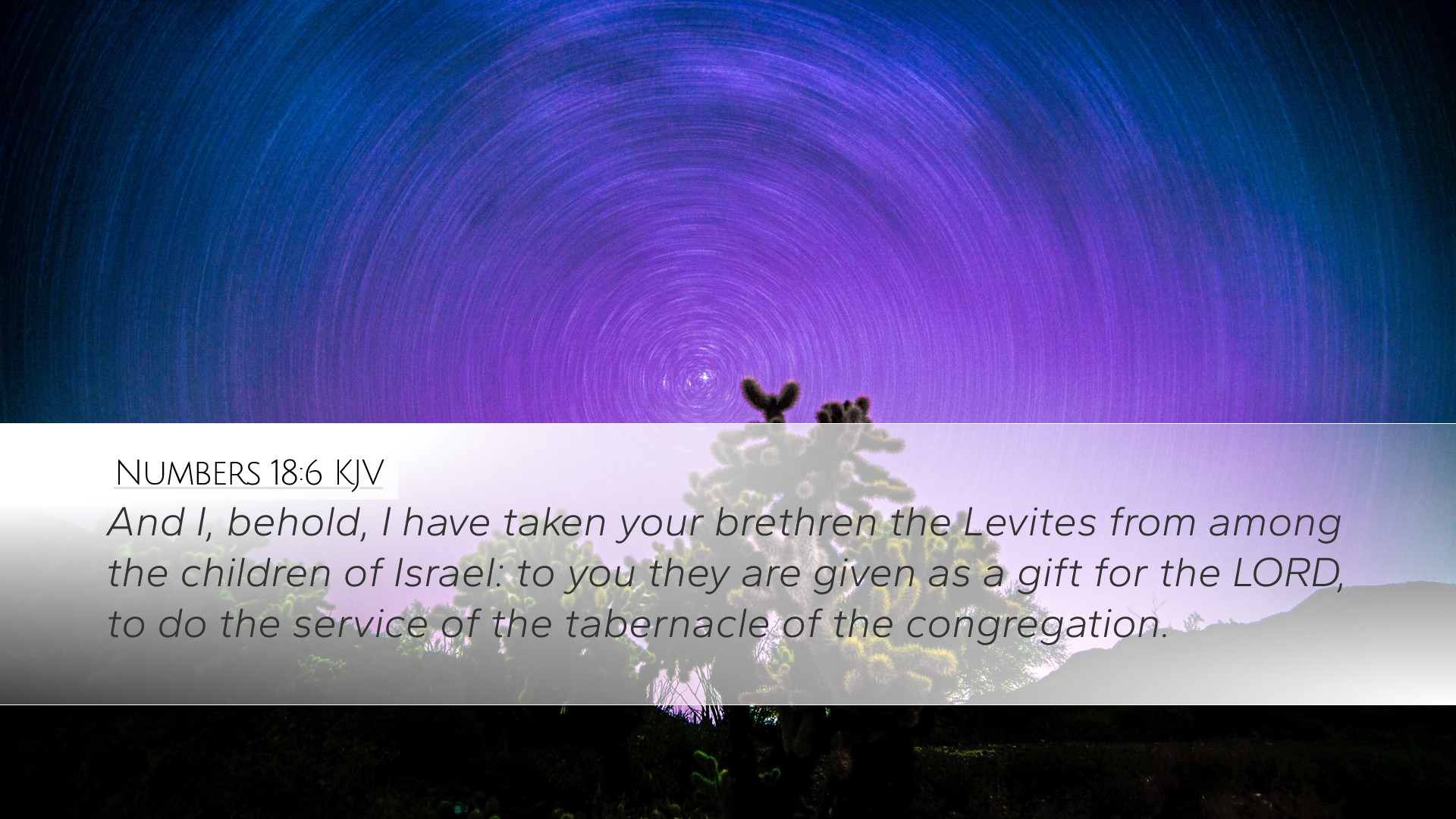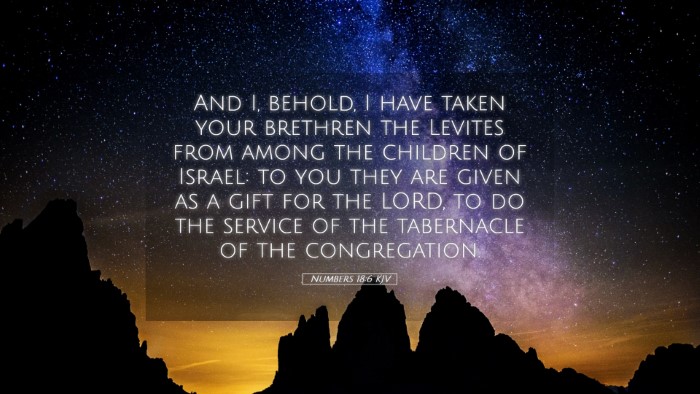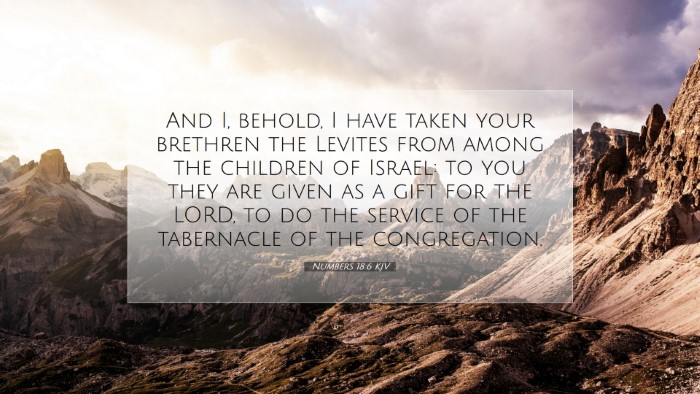Commentary on Numbers 18:6
Verse Text: "And I, behold, I have taken the Levites from among the children of Israel; instead of all the firstborn that openeth the matrix among the children of Israel: therefore the Levites shall be mine;"
Introduction
This passage from the Book of Numbers speaks to the divinely ordained role of the Levites within the Israelite community. Theological discussions surrounding this verse highlight themes of holiness, service, and divine selection. Public domain commentaries by renowned theologians like Matthew Henry, Albert Barnes, and Adam Clarke provide profound insights in understanding the significance of the Levites and God’s covenant with His people.
Understanding the Context
Numbers 18:6 is positioned within a broader narrative that details the responsibilities and distinctions of the Levitical priesthood. The chapter outlines how God designated the Levites to perform functions in relation to worship and the maintenance of the tabernacle, which was essential for the community’s spiritual life.
Historical Background
In the context of Israel’s history, this verse underscores a pivotal shift in religious practice and community structure following the Exodus. The consecration of the Levites serves as a reminder of God’s grace and His intricate plan to establish an ordered worship system among His chosen people.
The Significance of the Levites
Divine Selection: According to Matthew Henry, the Levites were specifically chosen by God to be substitutes for the firstborn sons of Israel. This selection is a profound example of God’s grace; instead of destroying the firstborn during the Passover, He provided a means of preservation through the Levites.
Role in Worship: Adam Clarke elaborates on the theological implications of the Levites' role as mediators between God and humanity. They were tasked with caring for the sacred items and performing rituals that maintained the sanctity of worship. Their dedication exemplifies the call to holiness and service.
Interpretative Insights
Theological Reflections
- Shifting from Firstborn to Levites: Albert Barnes mentions that the transition from firstborns to Levites symbolizes a broader spiritual principle: God desires not mere ritualistic compliance but a heart dedicated to serving Him.
- Covenant Community: By accepting the Levites, Israel reinforced its communal identity and collective responsibility towards holiness and service. This shift invites reflection on congregational life today, emphasizing a shared vocation in worship.
Practical Applications
For modern pastors and church leaders, the application of this passage is twofold:
- Embrace the Priesthood of All Believers: The New Testament draws on the Levitical model, affirming that all of God's people are called to represent Him. This reflects the royal priesthood described in 1 Peter 2:9.
- The Call to Service: In a world often centered on individualism, this verse reminds church leaders to cultivate a community where all believers actively participate in worship and service to God and others.
Challenges of Understanding the Text
The complexities surrounding Levitical law can pose challenges for contemporary interpretation. It is essential to approach this text with an understanding of its historical context and the socio-religious norms of ancient Israel. Clarke’s commentary suggests that one should not merely see the Levites as an exclusive priestly class but as representatives of a deeper calling to holiness.
Comparative Analysis
When compared with similar passages in Exodus and Leviticus, Numbers 18:6 emphasizes that the Levites' appointment was not merely functional but integral to God's redemptive plan. Alluded to in various theological settings, their role invites further exploration of ritual and relationship in the context of divine-human interaction.
Conclusion
Numbers 18:6 serves as a powerful reminder of God's sovereignty and grace in choosing the Levites as representatives of His people. This divine selection underscores the importance of holiness, community, and service within the life of faith. For pastors and theologians, this verse provides a rich vein for theological reflection and practical application, urging a return to the essence of worship and service in today’s church. As the legacy of the Levites continues to influence our understanding of ministry, may we be inspired to embody their commitment in our own lives.


